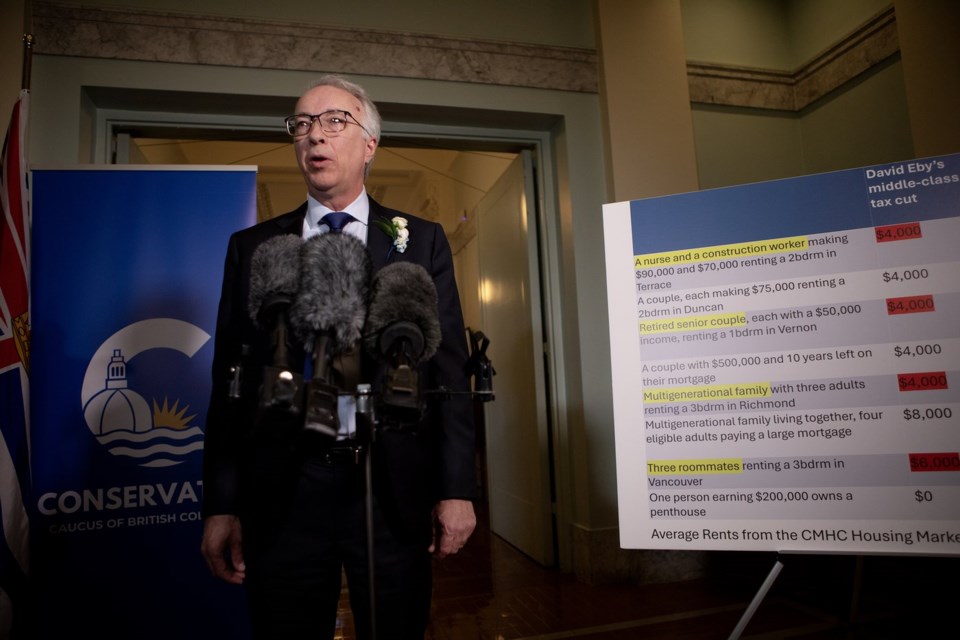VICTORIA — British Columbia Opposition Leader John Rustad has proposed a "carbon tax" on U.S. thermal coal that is shipped out of provincial ports and a ban on American funding for B.C. environmental activists.
The tax could be used as leverage against threats of American tariffs on Canadian softwood lumber, while the funding ban would reduce economic disruption, he said.
"We need to be able to create the environment to have a deal with the Americans. We can't carry on like this on softwood lumber," Rustad said.
The tax on U.S. coal could be a "tool to fight back" on softwood tariffs and duties proposed by U.S. President Donald Trump," Rustad told reporters on Monday.
“Until such time as the unfair and unwarranted American duties on our softwood are removed, we need to be ready to hit the Americans where it hurts,” he said in a statement.
Last week, Forests Minister Ravi Parmar said combined U.S. duties and tariffs on Canadian softwood lumber could increase to more than 50 per cent.
Softwood lumber has been a friction point between Canada and the United States for decades. The United States has applied anti-dumping and countervailing duties on softwood products, while Canada has taken its arguments to the World Trade Organization and challenged the duties under both NAFTA and the Canada-United States-Mexico agreement.
“What this is is a carbon tax that would be put in place to try to address a long outstanding issue that we have called softwood lumber and the softwood lumber dispute," Rustad said.
The B.C. Conservatives had previously said that "rather than retaliate and exacerbate" the tariff threat, it should be considered an "opportunity to rapidly advance B.C.’s economy."
Rustad distinguished between retaliating with tariffs and applying a "graduated carbon tax" that would be increased until B.C. got a softwood lumber deal.
He said 18 million tonnes of U.S. thermal coal is shipped through Vancouver, but the province doesn't use it.
Rustad also proposed the ban on American funding for B.C. environmental activists, who he called in a statement "troublemaking layabouts" who wasted police and courts' time and "dragged our resource industries through costly litigation."
"We are calling for an end, banning money coming in from the United States to these environmental organizations whose sole target is to disrupt our economy and to stop our opportunity for job creation and for creation of the prosperity and resources and revenues, of course, that government needs," Rustad said.
Also Monday, the governing NDP called for unanimous endorsement for a motion condemning Trump and backing the national plan for "strategically targeted retaliatory action." It was passed without opposition in the legislative assembly.
This report by The Canadian Press was first published Feb. 24, 2025.
Marcy Nicholson, The Canadian Press



